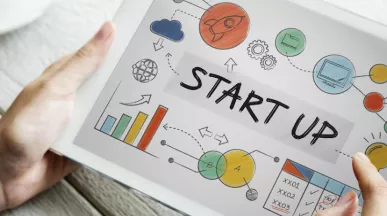Cell Phone Reimbursement: What It Means and How It Works in Companies

Cell phones have transitioned from a status symbol to a basic necessity. It has exchanged hands from the privileged to the poor and middle-class families. It has now become a real-time communication device, be it personal or professional. It has enhanced workplace productivity by incorporating multiple business tools, such as scanners, Gmail, and meeting apps. It is cost-efficient and provides flexibility with real-time accessibility. It also assists in remote and hybrid working environments. It is a multitasker. It can check your bank balance and buy shares with just one click. Innovations in cell phones are reducing the workload of laptops and computers.
Cell Phone Reimbursement
Cell phones have now become a mini-laptop for employees. They attend meetings, review reports, and even send urgent emails from their smartphones. It is a saviour in traffic jams, remote locations, and even on vacations. Now the question arises, who pays the bill?
Many companies provide cell phones with official numbers. They review the usage and make the payment. Companies generally give this perk to employees in middle and senior management. What about the lower-level management who are engaged in business activities?
The answer lies in cell phone reimbursement. Cell phone reimbursement is an activity where employers reimburse the mobile bills used for official work.
Why is it so important?
Cell phone reimbursement is essential to enhance productivity, availability, and efficacy. It is a version of BYOD (Bring Your Own Device). Here, companies are saving the procurement and insurance costs of cell phones. Moreover, companies are not required to maintain it as an asset. They are appreciating BYOD culture and paying reimbursement. Also, it is best for hybrid and flexible working environments. Many companies started paying the reimbursements, and it was added in all future appointments during the first and second waves of COVID.
How does it work in companies?
The HRMS portal of companies has a window to submit and claim the telephone expenses every month/quarter. The mobile bill and the month of usage are shared along with the expense amount. Generally, it’s the lower of the bill value or the eligible amount as per the grade of the employee. After submission, the manager and HR personnel verify the details and approve.
Strict Data Policy Protocols
One aspect of cell phone usage is having strict data policy protocols. When employees access the company’s data on their mobile phones, they face multiple risks, including theft, breakage, and hacking. Hence, cell phone reimbursement comes with its share of risk and responsibility. The company must implement data privacy protocols strictly.
Cell Phone Reimbursement Policy
Every company has a telephone reimbursement policy in place, and all the new joiners are informed about its applicability. Generally, it’s only applicable to managers, assistant managers, senior team leads, and team leads, as they are managing employees, clients, suppliers, or vendors.
A cell phone reimbursement policy lays out the guidelines, policies, and procedures for expenses incurred by employees using their devices. Eligibility criteria need to be mentioned clearly and concisely, along with reimbursement options. It mentions the maximum reimbursement amount according to the hierarchy, frequency of submission of bills (monthly, quarterly), reimbursement process, approving authorities (generally, the department head/managers and HR head approve), and timeline for submission (within a specific date for the month).
Taxability of Cell Phone Reimbursement in India
There is some good news. Reimbursement of cell phones is not added as income in the hands of employees in either regime (old or new tax regimes), but there are a few conditions to be satisfied, stated as follows:
- The reimbursement is on the actual bill submitted.
- The bill should be in the name of the employee.
- Employers should keep a tab on the usage. It should be strictly for business purposes.
- Only one connection/broadband service is applicable for reimbursement.
- The lower of two, firstly, the actual bill amount and, secondly, the maximum reimbursement allowed as per the company policy, shall be allowed.
The reimbursement is equally applicable for postpaid and prepaid connections.Moreover, at Pluxee (formerly Sodexo BRS), we offer various employee benefits, like meal benefits, fuel reimbursements, and rewards & recognition programs, all managed through a single digital platform. We have incorporated the telecom & Wi-Fi feature, which supports remote and hybrid work arrangements with connectivity benefits. These benefits aim to enhance employee satisfaction, productivity, and financial well-being while also providing tax savings and convenience.
For further information, please go to our website. You can also read https://www.pluxee.in/blog/designing-employee-reimbursement-programs-for-enhanced-financial-well-being-and-satisfaction/.
In 2025, when everything works on intranets and the internet, ranging from marketing to accounting, even filing government tenders and tax returns, cell phones are a boon. Employees can take urgent decisions instantaneously. Cell phone reimbursements empower employees, boost their confidence, enhance productivity, and build a sense of responsibility in employees.
Have you received your cell phone reimbursement?






